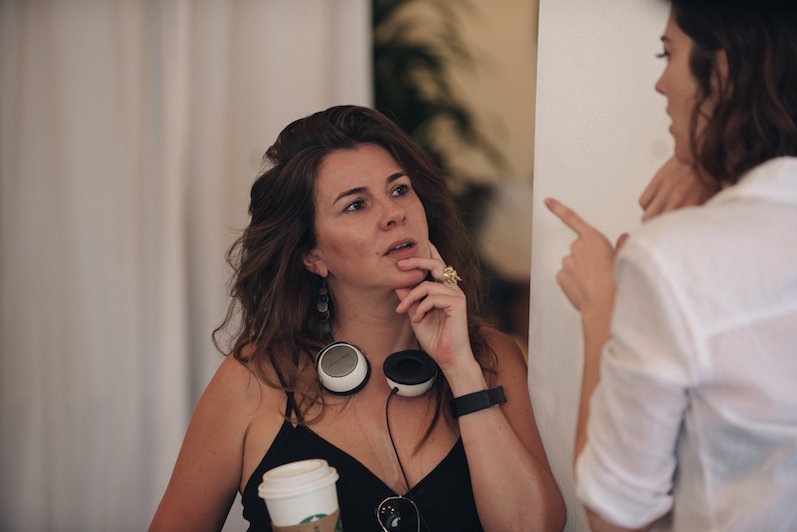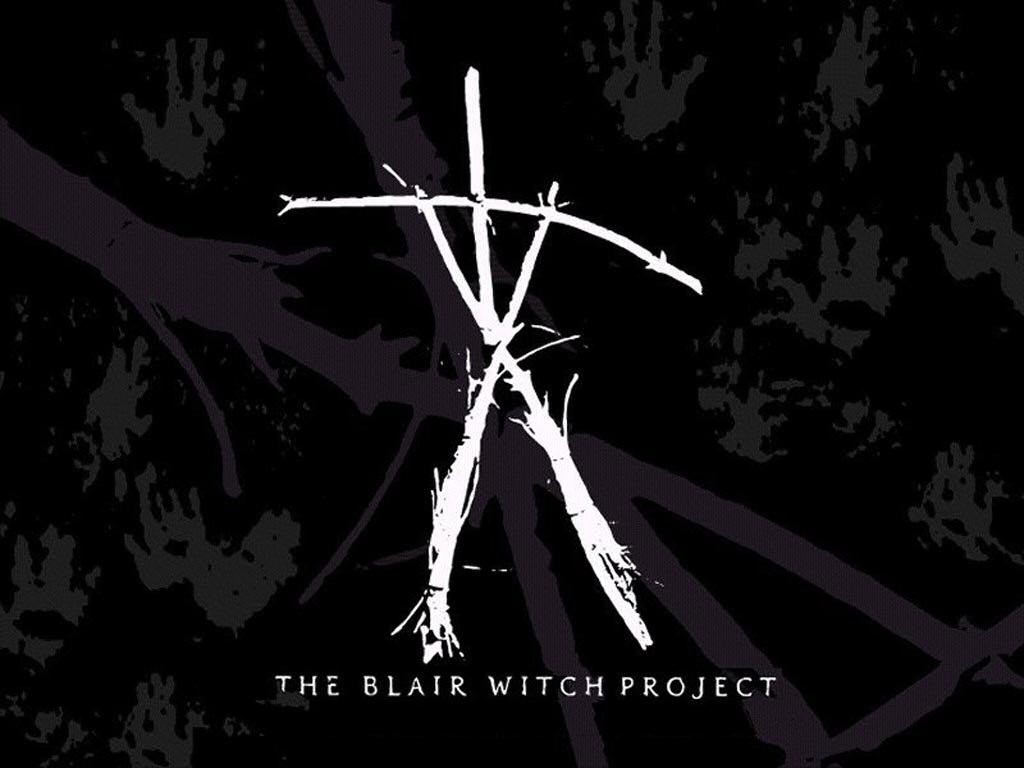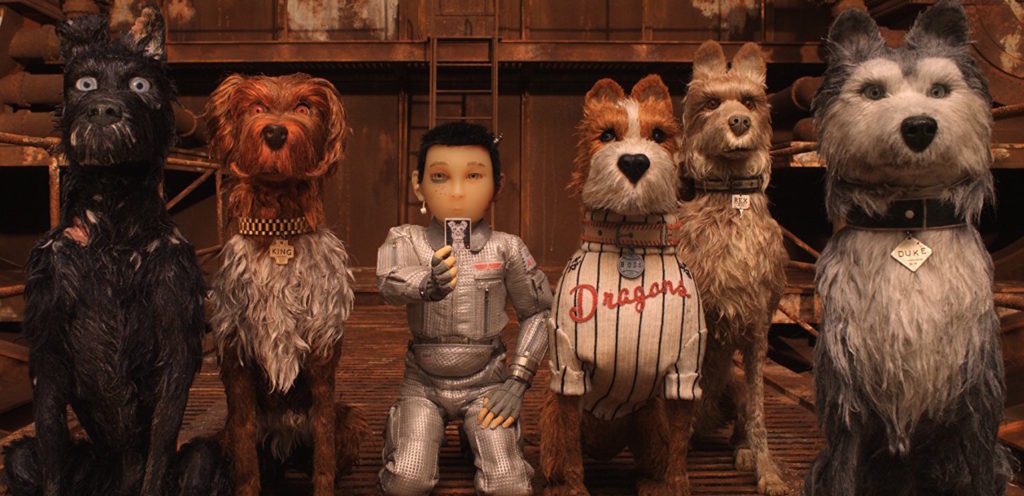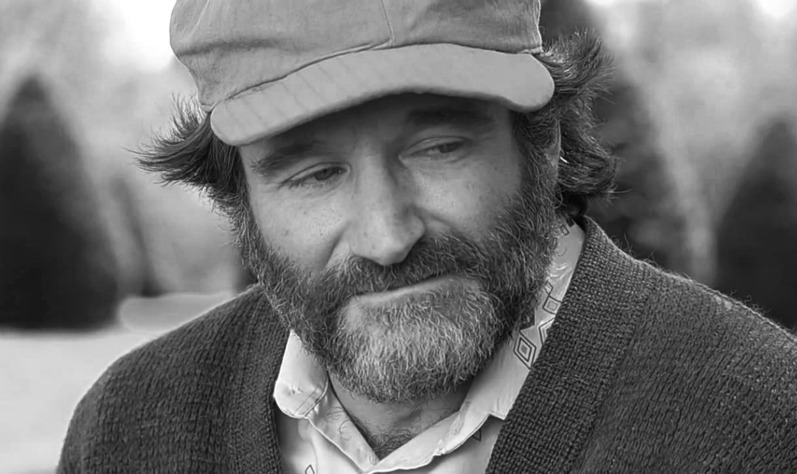EVA VIVES‘ career as a feature filmmaker has been long in the works. Though her feature debut ALL ABOUT NINA is just coming out, that doesn’t mean she hasn’t been a working indie filmmaker for nearly two decades. After graduating from NYU’s Tisch School of the Arts, Vives produced, cast, and edited the 2000 short film Five Feet High and Rising, which went on to win the Best Short Prize at Sundance and Cannes. She co-wrote the feature adaptation of that short, 2002’s Raising Victor Vargas, which landed her an Independent Spirit Award nomination for Best First Screenplay. Moving into the director’s chair, Vives helmed the short films Me Myself & I and She Pedals Fast (For a Girl), as well as Join the Club, which premiered at the 2016 Sundance Film Festival. Vives wrote a screenplay with Ice Cube, was chosen for the Disney Writers Program, participated in Sundance’s Screenwriting, Directing, and Sound Labs, and now – with All About Nina hitting theaters – she has her first feature under her belt.
Eva’s new film follows stand-up comic Nina (Mary Elizabeth Winstead) as she escapes New York – and an abusive relationship – to try her luck in Los Angeles. Common stars as a potential love interest helping Nina acclimate to life on the West Coast, where she confronts past traumas and plans for her professional future. Kate del Castillo, Chace Crawford, Jay Mohr, and Beau Bridges co-star. All About Nina premiered at the 2018 Tribeca Film Festival and will be released in theaters on September 28, courtesy of The Orchard.
We met up with screenwriter/producer/director Eva Vives at The Laugh Factory in LA to talk about her film, her cast, and telling a story set in the world of stand-up comedy.
——
EVA VIVES: Have you been here [to The Laugh Factory] before?
COLIN McCORMACK: I’ve been to shows here but have never seen the inner workings and all these back rooms.
EV: Yeah, I hadn’t seen this particular [room]. But we shot here so I got pretty comfy with it.
CM: Could you talk about the genesis of the script and where that first came from?
EV: A lot of it is my own personal story except for the stand-up, which I never did. I’d been kicking it around for a while, meaning I always knew I wanted to tell that part of my life but I wasn’t sure how. And honestly, the hardest thing was trying to figure out how to tell it tonally, because for whatever reason I wasn’t very attracted to the idea of treating it as a drama, which obviously given the subject matter is the first thing that one thinks of. I don’t know why. I think it was a way of owning it that I needed to not be crying throughout the whole thing. In a way, comedy was always very important to me growing up. I read a lot of it, I watched a lot of it; people like Richard Pryor, who not only is a great comic but spoke about his abuse so openly and so much. Talk about being ahead of his time, I think that was something that nobody else was doing at that time. So at some point, I just put the two together and thought, If she’s a comedian I can kind of get a little bit of both. To still treat the subject matter with the importance that it deserves, but be able to have some laughs, which is kind of how I lived my life. It’s very “me” that way.
CM: To be able to laugh through the pain.
EV: Yeah, as comedians do. It felt like a good companionship.
CM: Outside of being a fan of comedy, how much research was involved in terms of getting into the comedy world? The daily life of a stand-up, the career ups and downs.
EV: I didn’t do a ton of research because I knew the comedy world so well. Granted, it was more the ‘90s and the aughts in New York, so by the time I started writing it I was already living here and the LA comedy world I didn’t know as well. So I did – once I knew I was going to shoot it – go back out and see shows and get more acquainted, honestly more [with] the women in it because it was something that was so unusual still. I remember I went to the Boston Comedy Club a lot and actually, Jay Mohr was there, Dave Chapelle, Louis C.K., so many of the guys that eventually became so well-known. I think I saw a woman once and I remember being like, What is she doing here? She got treated very poorly on stage and left and I never saw her again. So that was something that I really wanted to look at now in terms of how women are dealing with it. I ended up meeting Jamie Loftus, who was our comedy consultant, who is very young and also a survivor – I say that because she’s very open about it and I asked her if it was okay to say it. And even with that stuff, I remember seeing her on stage talking about it, so that was very powerful and very different from when I was in the scene.
CM: What was it like having to write stand-up comedy sets for the characters to do? I assume that would be even more daunting than other aspects of a screenplay.
EV: You know, it’s so weird. I don’t mean to sound like, Oh it was so easy, but a lot of it was just my inner thoughts [laughs]. And that’s how I approached it because you know, it’s a script and I’ve written many scripts I never showed anyone so I thought, What’s the worst that could happen? If it sucks I won’t show it to anybody. But I remember that first monologue – which actually got really cut up for the intro, we only used certain things – it started with saying how hard it is to be a man right now, how she feels for them. And then it leads to this thing of all the things men could have done if they weren’t trying to fuck women. Then all the things women could be doing if men weren’t trying to fuck them all the time. It sort of extrapolated a lot more on that; it was just me sorting through it. I think that’s funny because you exaggerate things. Like really, would cancer have been cured if guys weren’t trying to fuck the lab assistants? No, but you just kind of take it as far as you can. Honestly, once I started I was like, “This is really fun!” I could never be a comedian – the stage fright is too much for me – but the writing part, that’s the beauty of being a writer, is you can vicariously live through every one of your characters. So it was a lot of fun for me.
CM: Did you workshop the jokes in a different way from getting feedback on the script as a whole, or was it always one in the same?
EV: No, those [jokes] changed over time. I was lucky enough when I did the Sundance Labs; I did two live readings of it with different actors. And that was one big workshop because those readings tend to be so dry that if you’re getting laughs at that, it’s probably a good sign. Because it’s just somebody sitting there reading. So that went fairly well. It was also interesting for me to see what lines got laughs. Like a line I always think is really obvious but always got laughs was when she says, “He gagged when he smelled my pussy. But like, dude, you work with fish all fucking day.” I was like, Eh, that’s really obvious, but it gets a pretty big laugh so I was like, Fuck it, I’ll leave it. If it works for people, who am I to say?
[Stand-up] was the thing we rehearsed the most; Mary was terrified of doing that. And I was never worried. I was like, “We’ll just keep working at it.” She’s a great actress; she could do it. She didn’t need to improv– she did a little bit once she got the hang of it, but I just thought as long as you learn this and work it and figure out your way of telling it, change it where you want. Jay [Mohr] was really helpful too. He’s really great with impressions, so I did ask Mary to do all of her bits for him and he was just like, “This is great. Don’t worry about it.” Which also felt good, because I know he would tell me [laughs]. Most comedians are very honest, so if it had not worked I would have heard for sure. Then Jamie came on later, who I mentioned before, and a couple of the great one-liners are hers. I had heard her do the Guitar Center joke in her own stand-up and I thought it could work really well for this, so I asked her. Certain things like that came from her as well.
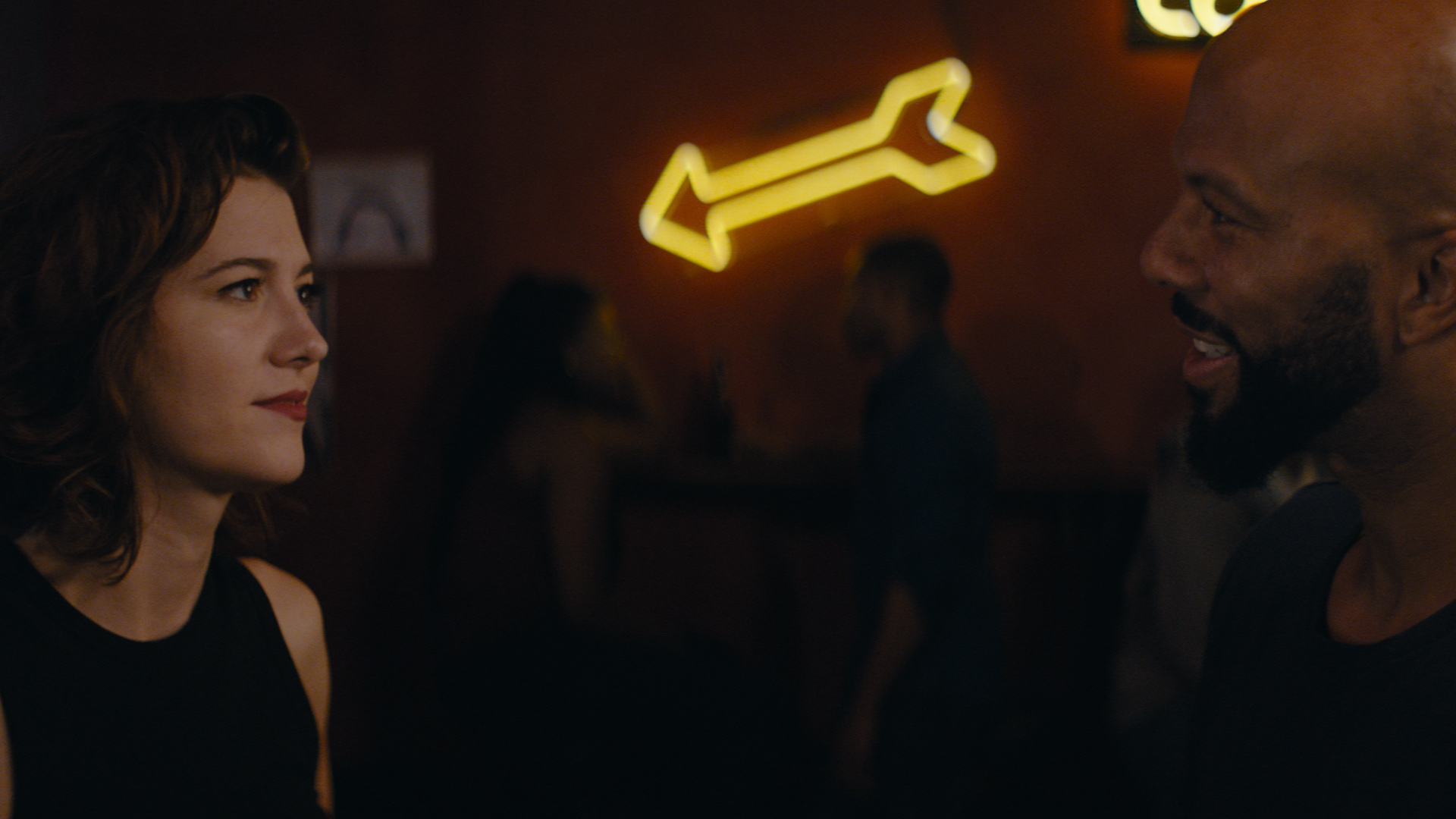
CM: In terms of casting, specifically Nina’s character, it’s almost become a trope in the industry of the comedian who wants to do a dramatic role and show another side. Was there ever any thought or pressure of needing to cast a stand-up comedian? Or did you know you wanted to cast Mary Elizabeth, who obviously has great dramatic chops?
EV: It’s interesting because there was – I wouldn’t say a terrible amount of pressure – but it was definitely suggested by a lot of people, and I think again it just goes to show how fascinated and terrified we are of comedians. What they do is very, very difficult and they make it look very easy. So I think people thought there’s no fucking way an actor can play a comedian and be funny. To that, I say writing is really important. Obviously a great actor as well, but if the writing is working then a great actor can always make it work. So I thought about it for a while but to me, I felt more confident getting an actor that I thought could play the character, which is already a very dense character with a lot of stuff going on. I had seen Mary’s work before and knew how layered she can be and I had full confidence she could play that. I’m not going to not let it be funny, so even if we have to throw all of this away and start over, we’ll get there. Luckily we didn’t have to. Once she got comfortable enough, she was like, “Okay, I got it.”
CM: There aren’t that many films with non-stand-ups playing stand-ups. There’s, what, Dustin Hoffman in Lenny and Sally Field and Tom Hanks in Punchline?
EV: Bob De Niro [in The Comedian].
CM: Yeah. So she was sort of stepping into somewhat uncharted territory. Did it take her a while for the nerves to fade away?
EV: She was very clear – and she’ll tell you that herself – about being nervous about that particular part, yes. But it’s funny, we each get to worry about our own things. That never worried me and maybe I’m nuts for it. Also, it’s my job to make sure it’s all working. I never had any doubts, but I thought we’ll just make it work one way or the other. Really rehearsing it a bunch and having her get comfortable, it was more about the physicality of it. I think that’s something that’s hard that you don’t think about. I had her listen to a lot of stuff, I had her watch some documentaries about comedians, especially the ones that I love. There’s a great one about Richard Pryor [Omit the Logic] that Marina Zenovich made, which I love. It’s so perfect because it talks about his trauma and what went on in his life, so there are a lot of parallels there. Then she went to a lot of shows. She should tell you this herself, but she went to one – I think it was Cameron Esposito – got heckled by a dude. He was like, “Show me your tits!” That whole thing. She stopped the show and talked to him about it and Mary was like, Did you guys plan this? [Laughs] I couldn’t go that night and I was so bummed because it’s like, “No, you see! It’s out there! It happens!” So I think she took all of that and was like, I can do this.
CM: It’s a weird balance of on one hand, Cameron I’m sorry that happened to you, and on the other, being thankful that [Mary] got to witness it.
EV: I know. She called me and I was like, “Are you being serious?” I believed it, but also what are the chances of she goes to the show and it happens? And from what Mary told me, Cameron tried to go on with the show but then backed up and was like, “Hold on, I need to deal with this.” Which, again, it’s just endless. As we’re seeing with the Supreme Court this week!
CM: Did Mary come with those impressions in her back pocket or did you have to workshop those and see what she could do?
EV: I had asked her if she had any and she came with Shelley Duvall and Kristen Stewart. I thought that was great, and then I realized when we started getting to know each other that she’s a singer, which I didn’t know and most people don’t know either. I listened to her a lot. She sang with Portugal. The Man; she’s quite accomplished. So I thought that was great because if you have chops like that it’s easier to imitate a voice, which I, for example, couldn’t do. She really liked that, so we just tried it. Shakira. She did a Britney one. There was a bunch of stuff she did that we didn’t have in the movie. Then the other stuff was more probably me tipping my hand. I love [Werner] Herzog; I think he’s funny even if you don’t know who he is. She listened to it and I could hear her slowing down her speech. And for me, writing that stuff was really fun, to get into his head. I also thought, What’s the most ridiculous thing [he could do]? And it’s LA, so ordering a smoothie gives you a lot of leeway with weird words you can use. It was a ton of fun.
CM: On the casting front, [Common’s character Rafe] seems like such an interesting character to cast, with really specific qualities to that guy, who’s sort of perfect but has different layers. How much was written and how much did Common bring his own qualities to it?
EV: Every actor brings a lot of themselves, and I don’t necessarily mean that it’s personal or a choice that they make for the character. So much of this stuff is so subjective because first, it’s instinct. I like Mary’s performances, so I can imagine her as Nina. So we sat down and talked about [whether] we see her the same way. And often I think that’s really the deciding factor because if she happened to have seen her as this really tragic and sad person in her day-to-day, I probably would have been like, It’s just not how I see her and therefore I don’t know how to make this work. With Common, it was a similar thing that even though I hadn’t seen him play a character like this, I just had an instinct that he could maybe be good in it and enjoy playing that, so I thought I’d send it to him. I’m a very instinctual person that way. Then we met and we just talked about him and as it turns out I think there are a lot more similarities between him – not the Common that you see on stage as a rapper, but who he really is – and Rafe. We did use some of that, but there’s also a lot of me in Rafe. People are like, “You’re Nina.” But I’m [Kate del Castillo’s character] Lake, I’m Rafe. There’s a lot of me in most of the characters.
CM: In terms of the instincts you bring to casting, you cast Five Feet High and Rising, who were unknowns who then went on to star in the feature. What’s the process like when you compare that to now when you’re casting people with big names and “personas” behind them, in contrast to the early days of finding raw untapped talent?
EV: It’s interesting because, for example, somebody like Common, who is so well-known and has a persona about him, that can work against him in terms of certain casting jobs; versus, nobody knew who those kids [in Five Feet High and Rising and Raising Victor Vargas] were, so that works for them in that case as they were playing a version of themselves. But the thing that unites to two to me is trust. It’s a visceral thing. Just as I thought Victor [Rasuk] from Vargas could play that guy and I just trusted him and wanted to give him the confidence to be able to do it, I felt that way about Common as well. I think he felt that and then you can come together and [discuss], “How are we going to do this?” For me, it was an incredible journey to work with both of them. I know you hear this all the time with directors that actors put their trust in you, but now that I’ve gone through it – and especially with a movie like this which has sort of everything in it – it really felt incredibly endearing; I felt very protective of [the actors] because I could see every day what they were giving me and how vulnerable they were. I don’t mean just when they’re crying or upset in a scene, but also the comedy and all of it. It made me feel very protective of them.
CM: Thinking back, Raising Victor Vargas had this really buzzy release very early in your career. What was it like dealing with that sudden thrust of a spotlight as a young filmmaker?
EV: You know, I wish that I could say I dealt more with that. But I was only the writer, and I do think that some of these issues that women are bringing up now had a part in it. Because the director [Peter Sollett] would say, “Oh, you should talk to Eva!” But I was kind of ignored, actually, even when he was trying to be honest about our process in the film, which I think I did more than just write it, it was very much my film as well. So I didn’t – for better or for worse – have to deal with that [spotlight]. I love the film; both the short and the feature were really beautiful experiences for me that I cherish to this day. I don’t know if you recognized, but Victor and Melonie [Diaz] are in this film too. They have little cameos.
CM: I noticed Melonie. I don’t know if I caught Victor.
EV: Victor’s in the very last scene, he gives her the time warning. I love them, they’re like my children.
CM: In this film, Nina has the New York vs. LA thing going on. The pressure of, Do you pack up and try to make it in LA? You were based in New York, so did you face that?
EV: I think it’s a constant question. I went to NYU and when we were graduating people kept using this phrase of, I’m going to LA to “make it.” I was new to this country and my English wasn’t so good, so I was like “make” what? I was always like, “What are they making?” So I did wonder about it for obvious reasons. I always loved New York and I felt at home there, and my husband is from Brooklyn so he of course felt New York was the center of the world and never wanted to leave. Then when we eventually made the move out here, I want to believe I [wasn’t] as snobby as some New Yorkers are about that move. Although most of them – like my husband – end up moving here and they love it and they wonder why they wasted so many cold winters in New York. But I definitely wanted to play with that because I do think it’s a bit of a shock to the system, both in a good and a bad way. I was very much like Nina in terms of attitude, and when I came here I met all the Lakes of the world and was like, Oh my God I don’t think I can handle this. But then as you get to know a lot of these people, they’re very truthful and in a way, it’s their form of therapy. So as I opened up more to them I’m thinking, Who am I to judge how they do it? If it’s by doing a truth circle, then so be it. How is that different from therapy? That was again my duality.
CM: You mentioned you went to NYU. You’ve gone through a couple of the Sundance Labs. You’ve been a fellow for various organizations. Have you held onto connections through each of these processes and different filmmaking communities?
EV: Oh yeah, so many. I can’t say enough good things about the labs. So many of the advisors that helped me there continued to read drafts and watch the film. A bunch of them were at the premiere last night. It’s an incredibly supportive group of people. I’ve remained friends with, for example, Raúl Castillo, who played Rafe for me up at the lab. We’re friends and I hope we get to work together soon. Also, I took a lot of lessons there from so many of the advisors. So much of my confidence on set of letting actors find their characters and do their thing came from having done the labs. I think as a first-time director you’re often told you have to magically direct actors and know what to say. And I felt a lot of pressure prior to the labs of, What am I going to say to them? How am I going to direct them? And actually, what I learned there was mostly just letting them do the work and let them do it a couple times and see what they’re doing and what they’re giving you, it goes a long way. I credit them a lot with having the very positive and nice set that we did. That’s huge.
CM: The film comes out at a very interesting time, not only in American culture but specifically the comedy world, after Nanette coming out and blowing everyone’s minds with what a stand-up set can be-
EV: Louis C.K. trying to make his comeback.
CM: Yeah, Louis C.K.’s downfall and attempted comeback. How does it feel to be in that mix and a part of that conversation in portraying the comedy world in such a tumultuous time?
EV: It’s bizarre, to say the least, because it took me a long time to be able to tell this story. And when I did I sort of felt like it would be a shot in the dark a little bit, like, Here’s this story. Let’s see if anybody wants to pay attention and listen to what one survivor went through. Obviously, I know from experience there are a lot of us out there, so I thought if nothing else it would be helpful to people who have gone through it. But I was also hopeful that it would maybe start a little bit of a conversation about what that’s like. Then while we were editing, all of this blew up and it’s been very triggering – as it has been for obviously a lot of us – especially in the realm of politics, but certainly in the film world and comedy world. It’s hard to find the words because it’s good that it’s being talked about and I’m glad that it’s getting out there, but it’s a lot to handle. If I can be a part of that, then I’m proud of it, but I definitely think we have a lot more work to do still.
CM: How has the response been when you’ve taken the film around through the festival route and now that it’s rolling out theatrically, in terms of the comedy world? Have you heard from [comedy] people?
EV: Not really, no. It’s weird, I think it’s such a minefield for people that they kind of don’t want to talk about it. I think I just got a request from The Comedy Cellar to come in, which could be interesting. But no, and I wish people talked about it, and I’m glad that you’re asking because – as the movie says – the truth will set you free. It’s such a pat sentence but I do feel like the only way to get through some of these things is to be open and talk about it, and that means admitting our faults as well. I do think men need to be a big part of this conversation and we can’t keep asking women to do all the thinking. It’s great to be listened to, but I want to know what the fuck was going through Louis C.K.’s head and everybody at The Comedy Cellar’s to have him come back and do 15 minutes. And a rape joke. Anyway, thank you for asking because I think it’s important.
CM: What’s next for you? Any other projects lined up?
EV: Well, I’m hoping to keep writing and directing. It’s been hard to finish the movie and do that. I have two scripts. One is a revenge film, like a feminist revenge film that I also think will be very timely now as well. And the other one is more of an All About Eve theater world [story]. Very actor-y, which I also love.
__
Thanks to Eva for talking with us about ALL ABOUT NINA. Follow the film on Facebook, Twitter, or Instagram.
This interview has been edited for clarity.
If you’re an independent filmmaker or know of an independent film-related topic we should write about, email blogadmin@sagindie.org for consideration.

